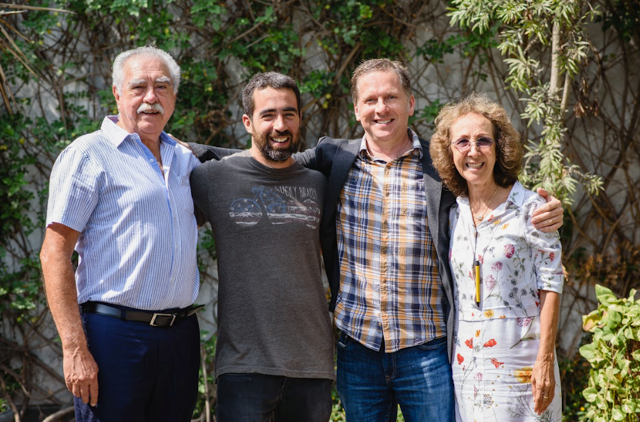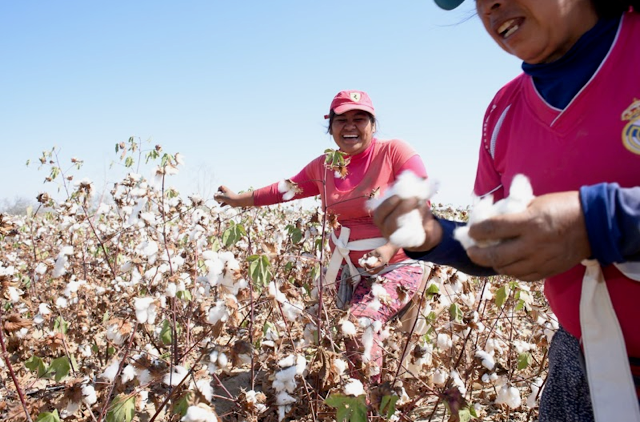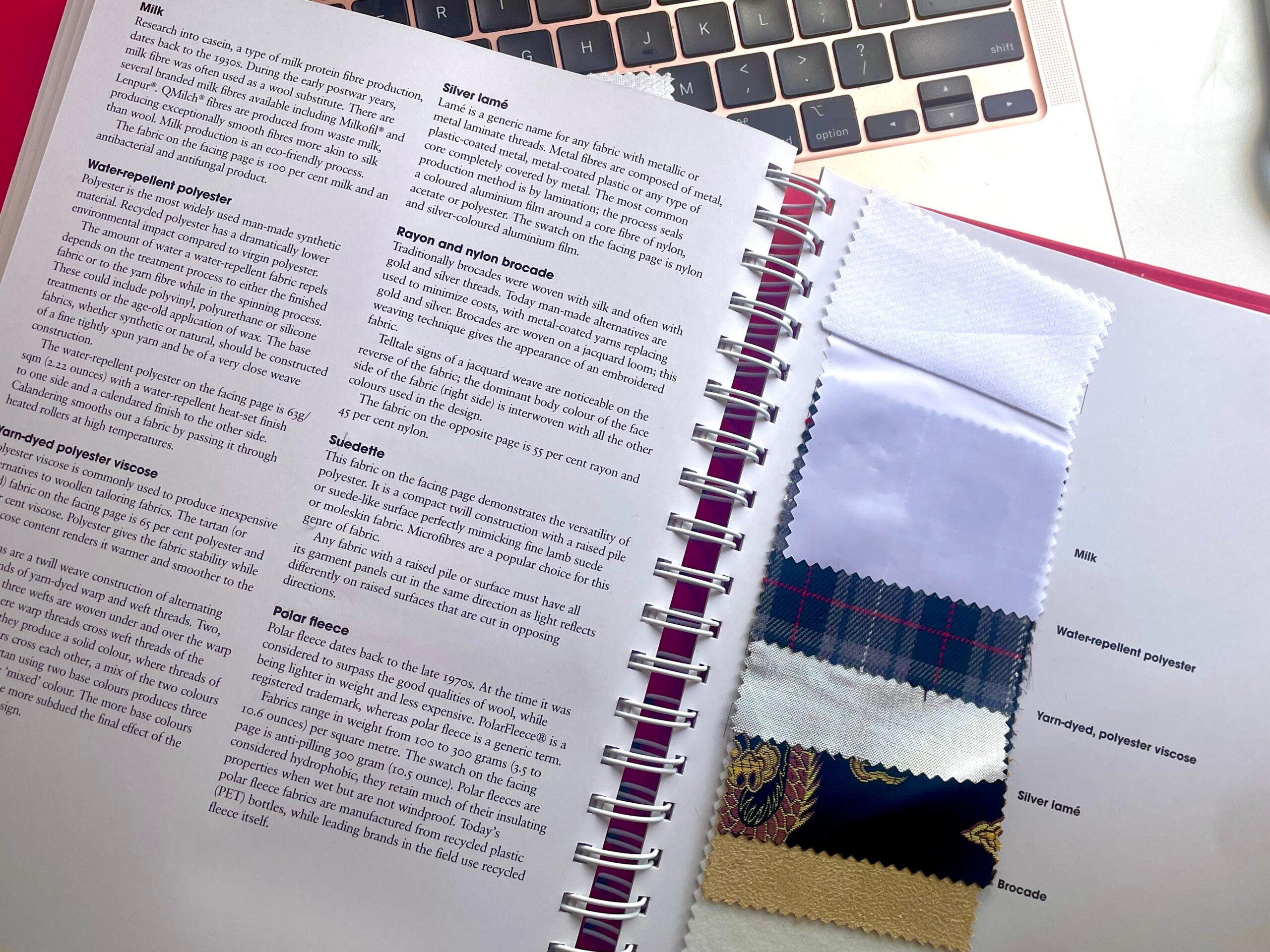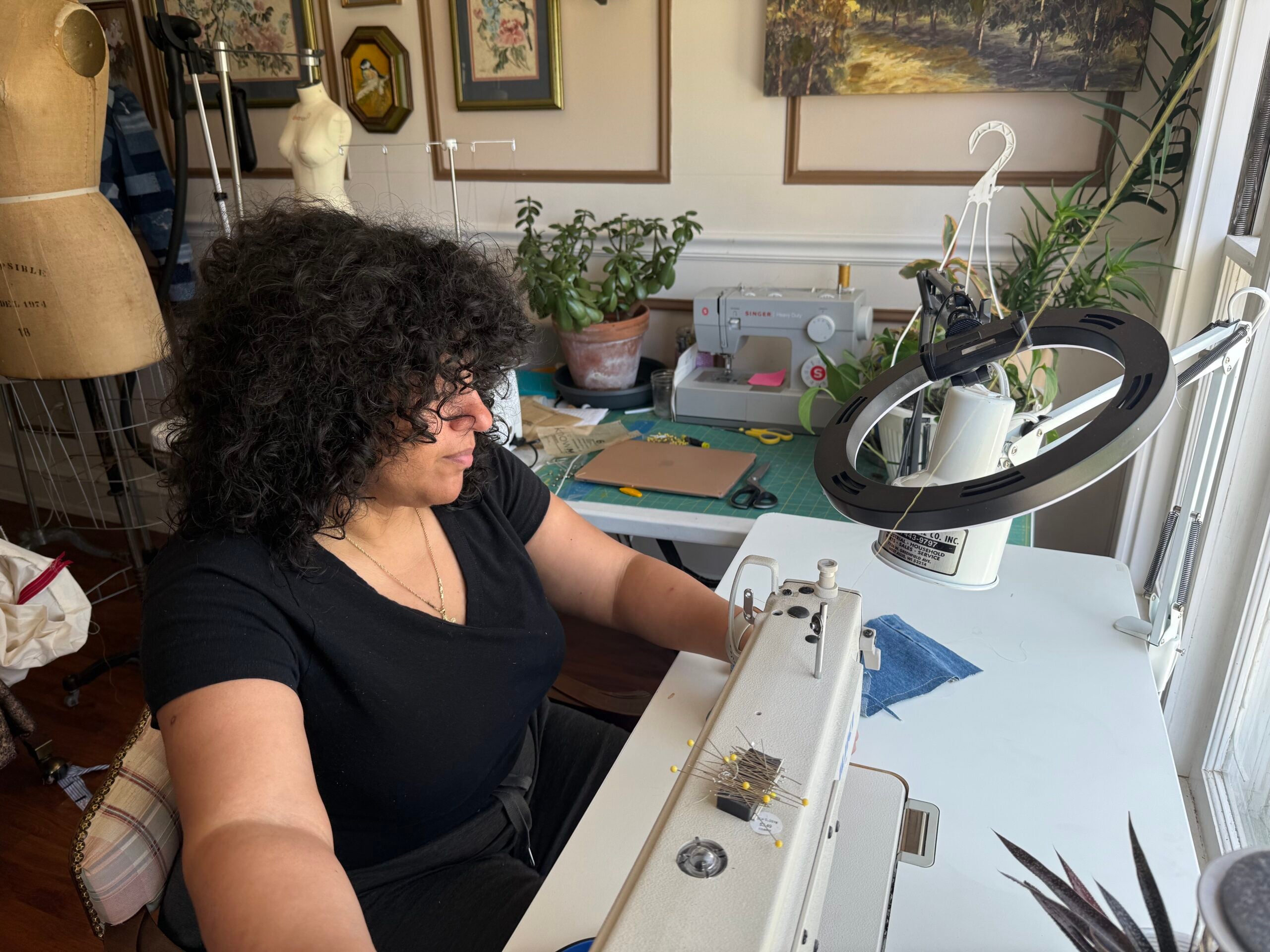Robert Behnke had no idea a business trip to Peru in 2012 would lead him to a future in fair trade apparel.
Once the Wisconsinite walked inside a small-batch sewing workshop, he noticed a group of happy workers, dedicated to the art of sewing.
“Forty-five seconds, our jaws just dropped,” he said on WPR’s “Wisconsin Today.” “They were doing amazing handy work for kids’ dolls.”
News with a little more humanity
WPR’s “Wisconsin Today” newsletter keeps you connected to the state you love without feeling overwhelmed. No paywall. No agenda. No corporate filter.
Behnke, president of the Madison-based brand Fair Indigo, said he felt an immediate connection to the owners at the time, Javier and Elsa, who grow organic Pima cotton that gets used for making clothes by hand. They began the practice 48 years ago.
Today, Behnke and Fair Indigo ship samples and garments back and forth with the Peru workshop, now run by Javier and Elsa’s children, Javier Jr. and Mariana Otoya.

Behnke said with tariffs now in effect under the Trump Administration, Fair Indigo faces a 10 percent tariff on clothing and textiles supplied by his partners in Peru.
“Do we feel it? Yes,” he said. “We are fortunate enough that it’s only 10 percent, and we can sort of try to work around that as best we can.”
Fair Indigo won’t have to raise its clothing prices because of the Peru tariff, but Behnke said this may make people think a bit harder about the clothing they buy.
Fashion instructor addresses tariffs’ effects on jeans
Iris Acevedo of Milwaukee researches sustainable textile materials, like plant-based fibers, to teach students at Mount Mary University and Milwaukee Institute of Art and Design how to create low cost, high quality clothing.
On “Wisconsin Today,” she said tariffs in the textile and apparel industry are concerning, as China is the leading exporter of denim in the world. Meanwhile, the U.S. is the top consumer of denim.
In 2023, America imported about $31 billion in apparel from China and Vietnam, according to the U.S. International Trade Commission.
Last month, President Trump imposed a 145 percent tariff on Chinese imports, while there’s a 125 percent retaliatory tariff by China on U.S. goods.
“We do a lot with China,” she said. “I know [U.S.] cotton producers who export to China for manufacturing are concerned.”
She also owns an at-home sewing and apparel business, which she opened in 2020. Sew House Apparel, now known as Reworked By Iris, uses a made-to-order concept.
Acevedo said it would be a great time to think about reintroducing domestic production to reduce the cost of shipping jeans overseas — effectively a tax due to the tariffs.
However, that comes with costs of building infrastructure that could replace the supply coming from China, as well as labor to produce the apparel.
Likelihood of factories in Wisconsin
When asked whether apparel factories could work in Wisconsin, Behnke said the weather here simply doesn’t work well for growing cotton.
“We could get cotton from South Carolina,” he said. But it would be hard to suddenly replace the well-established supplier he’s formed a relationship with in Peru.

Mariana Otoya told “Wisconsin Today” that their small-batch workshop to make an article of clothing takes about 90 days, as cotton is also only harvested once a year.
“Around one month for the sample to be approved,” she said. “Then there’s the timing [of] fabric — dying the fabric with the requested colors.”
Behnke said bringing large-scale clothing production back to America would create higher prices for consumers. He acknowledged a growing movement for small-batch clothing operations in Wisconsin.
“I know some technical and trade schools are reintroducing the old school apparel-making skills,” he said.
That includes fashion instructors like Acevedo, who said her most popular class is textiles, which focuses on incorporating plant-based materials — hemp and milk fiber.
She called it an “exciting” time in the industry, as there’s a growing number of people gaining interest in sewing.

“There’s a very large presence between online sewing schools, sewing courses that people can purchase,” she said.
But Behnke and Otoya agree that operating a family sewing business requires hours of dedication to the intricate practice, along with fair wages for happy workers.
And despite small-scale businesses like Acevedo’s and growing interest in the textile and apparel industry, there’s simply no quick, straightforward transition away from the current global market.



